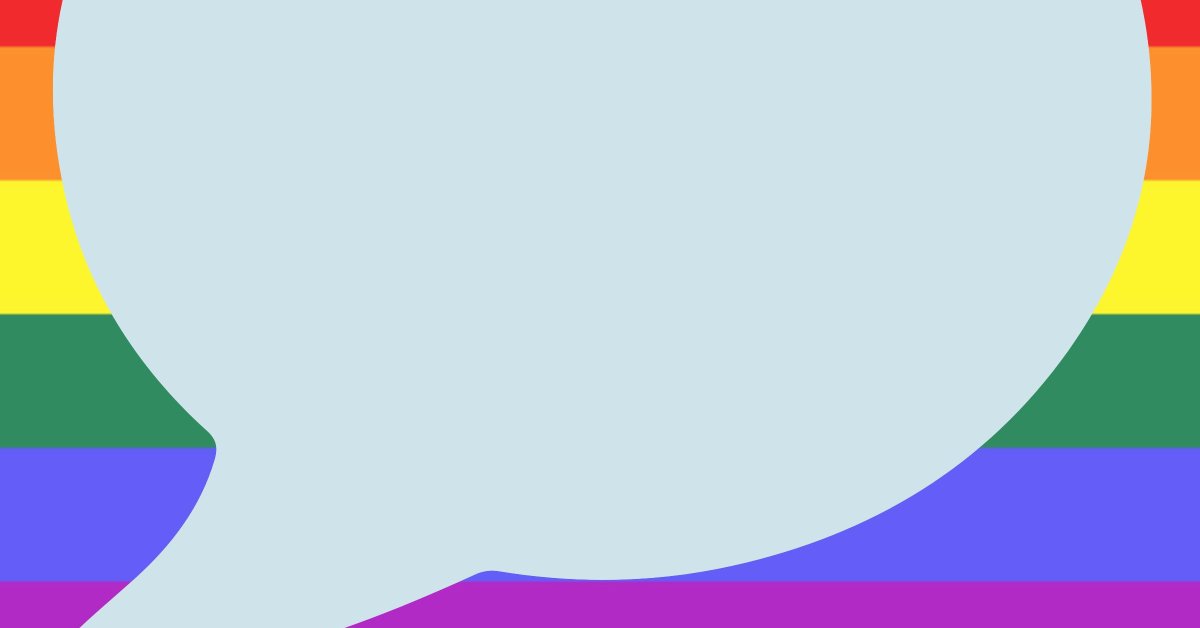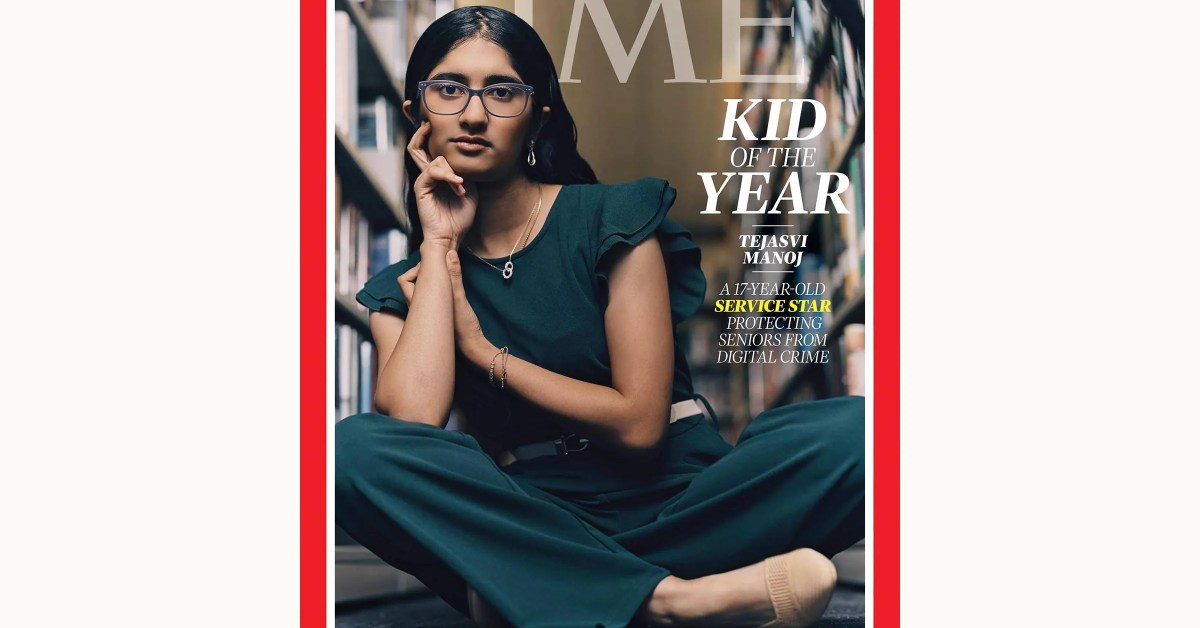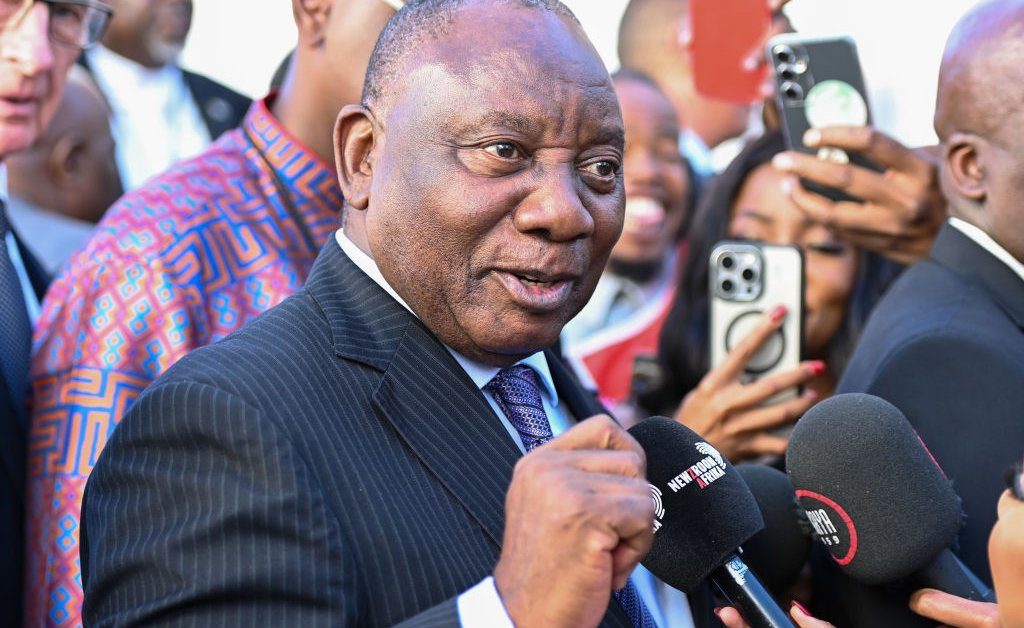When someone trusts you enough to come out to you, it’s essential to choose the words you respond with carefully and thoughtfully. “Empathy is, in that moment, the most important tool you have to be an ally and to be there for the person you love who’s opening up to you,” says Max Talisman, a queer filmmaker, actor, and founder of Malibu, Bro Productions. “Letting them know you’re hearing them is everything in that moment.”
To signal they have your full attention, don’t interrupt your friend or family member as they talk, he adds. Unless they ask you a question, “Let them speak,” Talisman says. “Don’t interject, and don’t make jokes. It’s all about showing love and respect.”
We asked a handful of leading voices in the LGBTQ+ community exactly what to say when someone you care about comes out to you.
“So?”
When people come out, they’re still the same person they were five minutes or hours or days before that monumental moment. If anything, they’re more themselves. That’s why it’s so important for those on the receiving end to make it clear they’re not going anywhere. When Talisman came out to his parents, the first thing his mom said to him was: “So?”
“It was the most calming thing she could have said, because it meant that it didn’t change a thing,” he recalls. “It was the same with my dad. It didn’t change anything for them. I was still their son, and they still loved me so much.”
“Thank you for being you.”
You could thank your friend for opening up to you. But Talisman prefers putting a spin on it and, instead, thanking them for being them. You might word it like this: “I love the person you are, and I’m grateful to be here with you when you’re being more authentic than you’ve ever been.”
Thanking your friend is a much better approach than telling them you’re not surprised by their news. That’s a common response when someone comes out, Talisman says, and he doesn’t understand why some people feel compelled to say it. “It doesn’t add anything to the moment, and in fact, you’re almost taking away this moment of vulnerability because you ‘knew’ the whole time,” he says.
“I love you, and I support you.”
As a Lutheran deacon, Ross Murray, who’s the vice president of education and training at the GLAAD Media Institute, spends a lot of time working with LGBTQ+ teenagers. He’s seen over and over again what happens when young people struggle to find support at home after coming out, and it can be dire. Up to 40% of youth experiencing homelessness identify as LGBTQ+, he points out.
Read More: 14 Things to Say Besides ‘I Love You’
That’s why, if you’re the parent of someone who just told you they’re queer, it’s crucial to reassure them and instill a sense of safety and security. Telling them you love them is “the initial piece of affirmation that’s going to let them know the relationship isn’t changing,” Murray says. “They’re going to receive that love and support, and whatever’s going to follow will still be grounded in a caring, healthy relationship.”
“Is there anything I can do to be there for you?”
People who are coming out should be in control of their own journey, including how and when they share the news with other friends or family members. While it’s important not to overstep, they’ll probably appreciate it if you ask them for specific ways you can show support. “It’s never appropriate to out somebody,” Murray says. “However, they might say, ‘Would you want to intercede with Grandma for me?’” Follow your loved one’s lead, he instructs, and remember that everyone will need something different—and your friend might not know yet exactly what that looks like.
“Thank you so much for trusting me with your truth.”
This works any time someone comes out, but it’s particularly meaningful for trans people, says Suzanne Ford, executive director of San Francisco Pride (and the first trans woman to hold that role for the organization). “It demonstrates that you value the other person being authentic, and you value their trust, and that’s really important,” she says. “If you start there, it’s probably going to go well.”
Read More: The Worst Thing to Say to Someone Who’s Depressed
Whatever you do, don’t make the conversation about yourself and how the revelation will affect your life. “When I came out to my mother, it became about her,” Ford says. “She lost her son. A lot of people do that, and that’s the worst thing you could do, because it’s not about you, it’s about them.”
“What are your preferred pronouns?”
Step one: Find out what pronouns your friend prefers. Step two: Actually use them. When someone comes out as trans, you can also ask them if they’re changing their name, and if so, to what, Ford advises. Would they like you to use that name to address them? “You shouldn’t make any assumptions,” she says. “Everybody comes out at different points in their transition, and they may not be ready for that.”
“I have to tell you about this cool Pride event the other day.”
Even before someone comes out, you can make it clear that you’re a safe person to confide in, says Zachary Zane, sex and relationship expert with Grindr, a dating app for gay, bi, trans, and queer adults. Do that by using gender-inclusive language, and avoiding assumptions about gender or relationship norms.
Read More: 10 Things to Say When Someone Won’t Get Off Their Phone
“You can share your own experiences if it’s appropriate,” he says. “If you’re comfortable, mention supportive attitudes or experiences, like talking about LGBTQ events you went to, or somehow signaling acceptance in a way that’s more subtle than, like, ‘If you were gay, I would still love you.’”
“I really appreciate you sharing with me—I know that wasn’t easy.”
Less is more in the initial conversations when someone comes out, Zane says. It’s best not to pepper them with questions, especially about the future, because they probably don’t yet have all the answers. After he came out as bi, a family member asked him: “Does that mean you’re going to marry a man or woman?” “I’m like, ‘I have no idea,’” he says. “‘I’m just exploring my new attractions to people, and I’m going to start dating men in addition to women.’”
“Wonderful! When are we celebrating?”
This is a great way to show you fully embrace your friend, however they identify, says Jason Mitchell Kahn, a wedding planner who specializes in LGBTQ+ weddings and author of We Do: An Inclusive Guide When a Traditional Wedding Won’t Cut It. “It’s really simple, and it comes from a place of 100% support,” he says. “Coming out is a major, major step for a lot of people, and sometimes it takes years to grow comfortable even doing it.” The fact that your friend felt ready to share how they identify? That calls for a grand celebration.
“How much do you feel comfortable sharing right now?”
Not everyone wants to launch into a lengthy conversation after coming out. “Some people are ready to declare it, but they don’t want to talk in detail about it,” Khan says. By asking how much your friend feels comfortable sharing, “you’re giving the person that’s coming out permission to do it on their own timeline.”
“In me, you have an ally.”
This is a lovely sentiment, Kahn says: It reinforces that you think of your friend just as highly as you did before, that the status of your relationship hasn’t changed, and that they can count on you however and whenever they need you. He suggests adding: “I’m so happy you’re one step closer to living in a way that’s true to yourself. I love you just the same, and if you ever want to share more details about what you’re going through, I’m here for you.”
Wondering what to say in a tricky social situation? Email [email protected]








